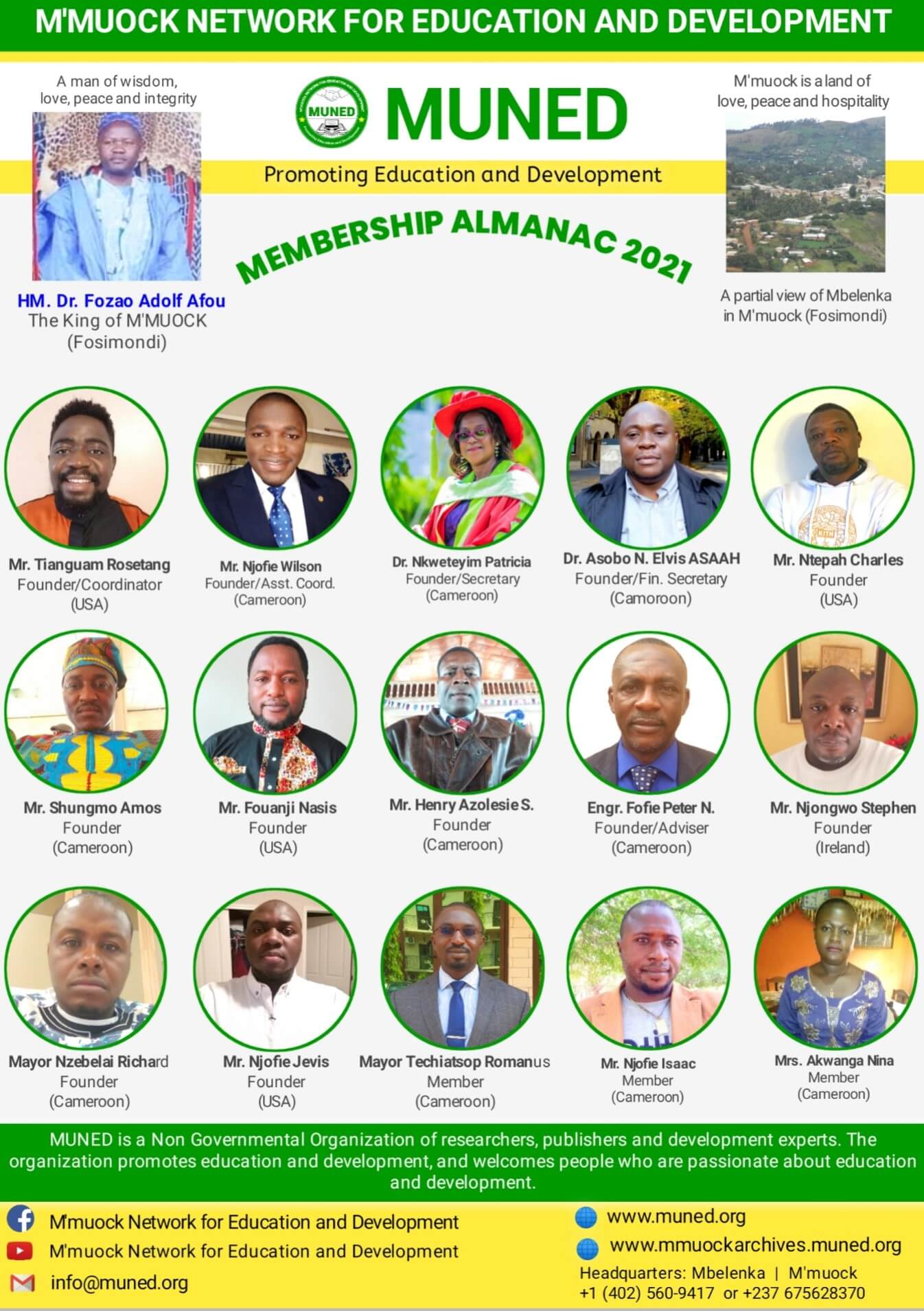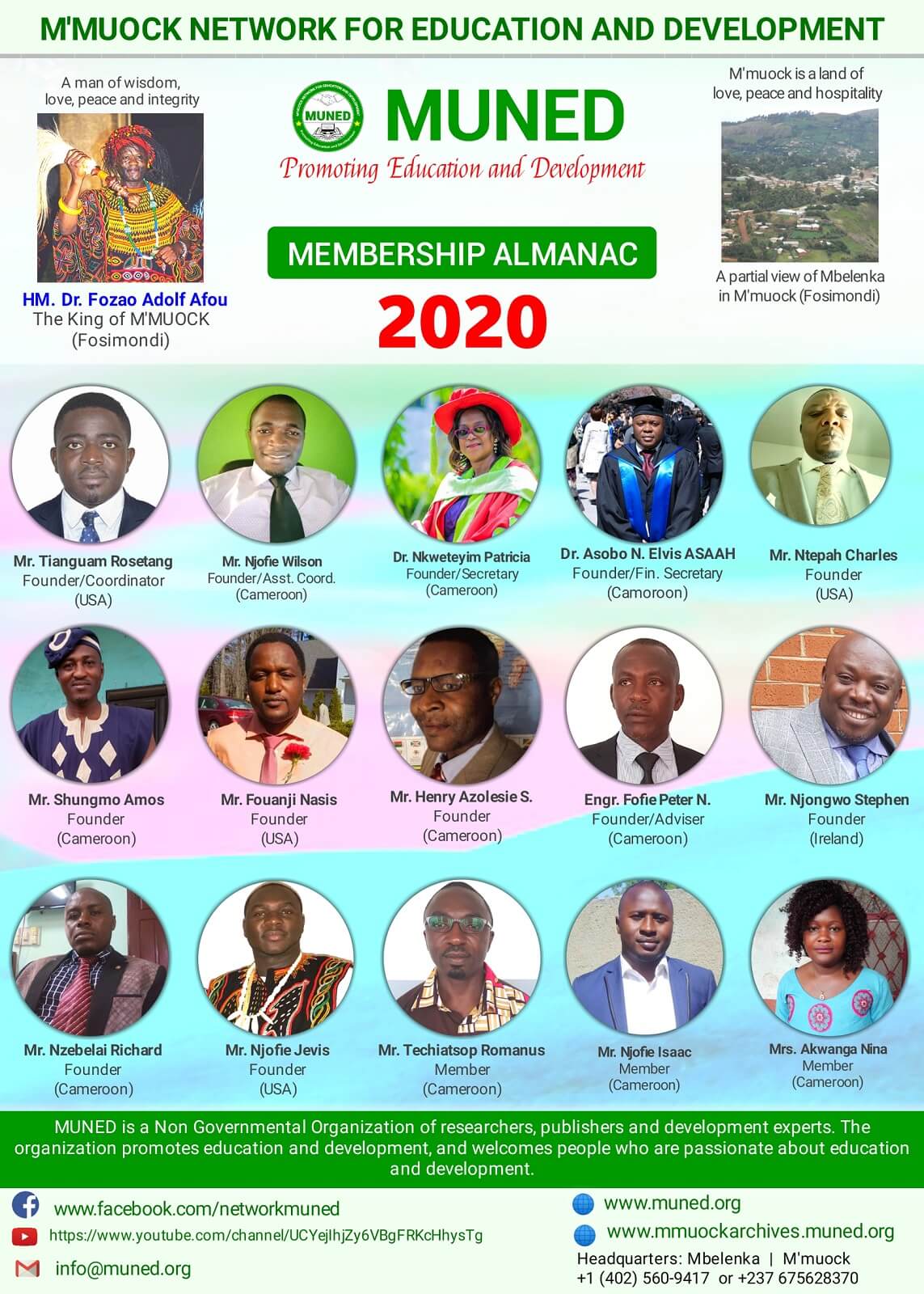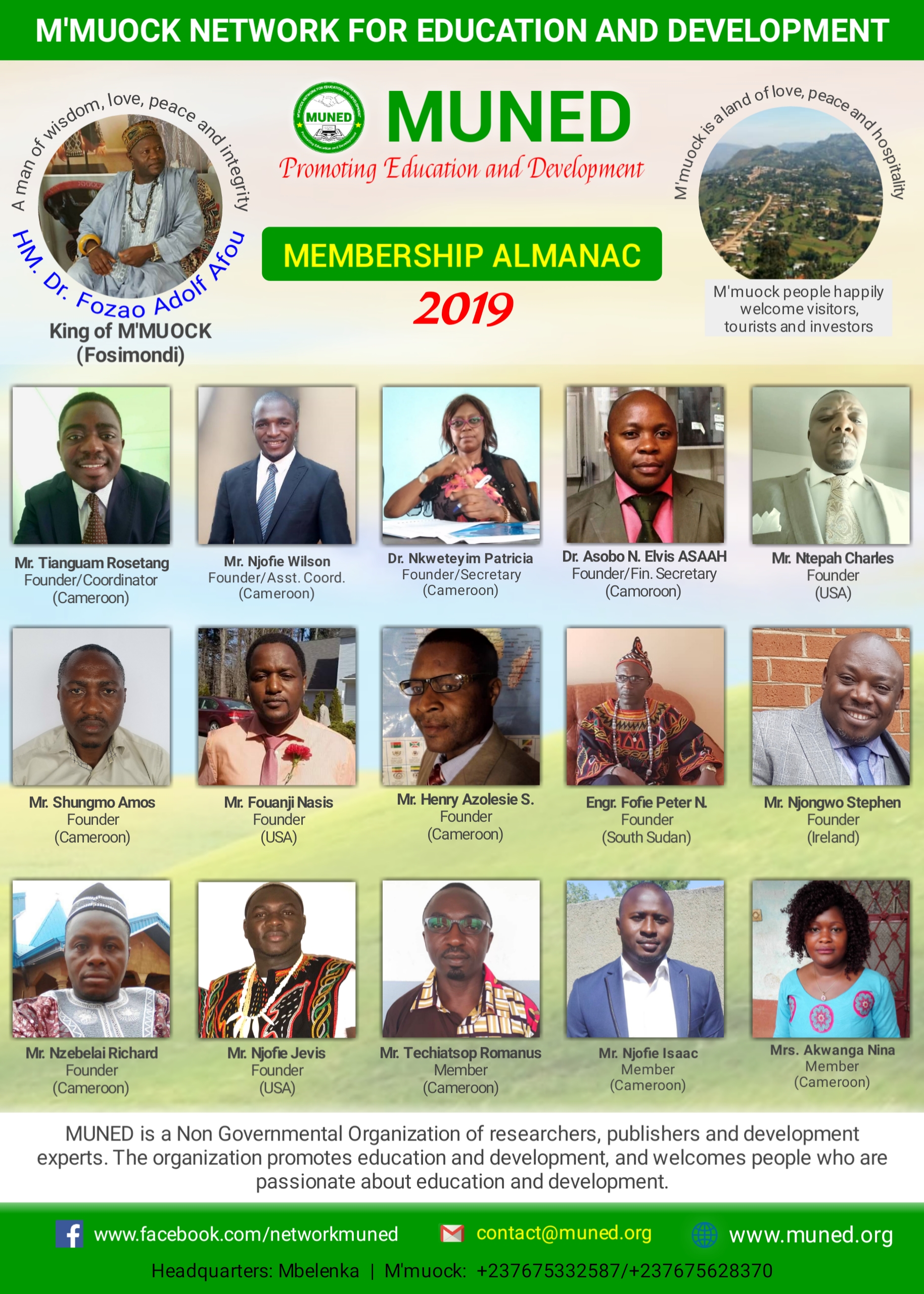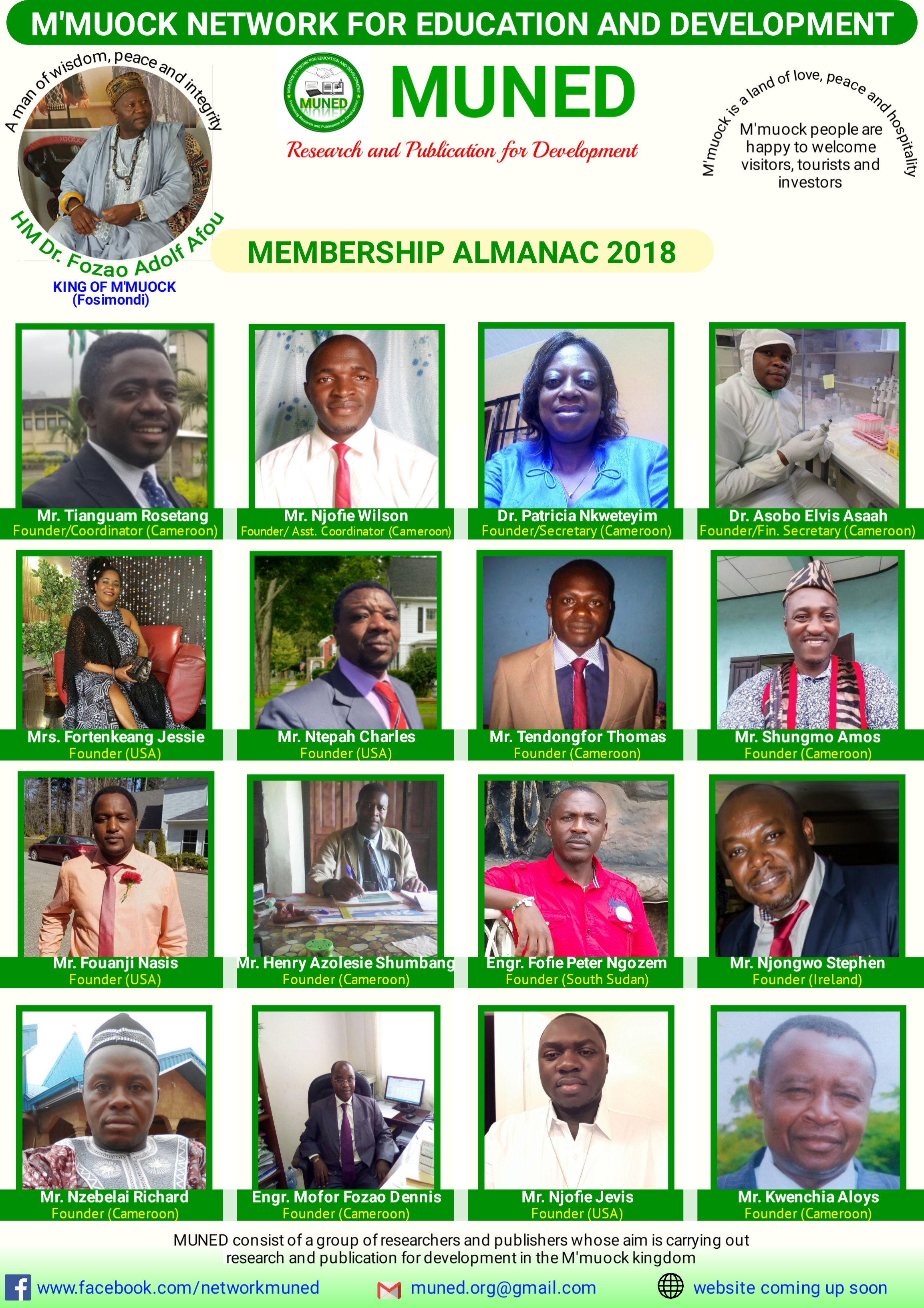About MUNED
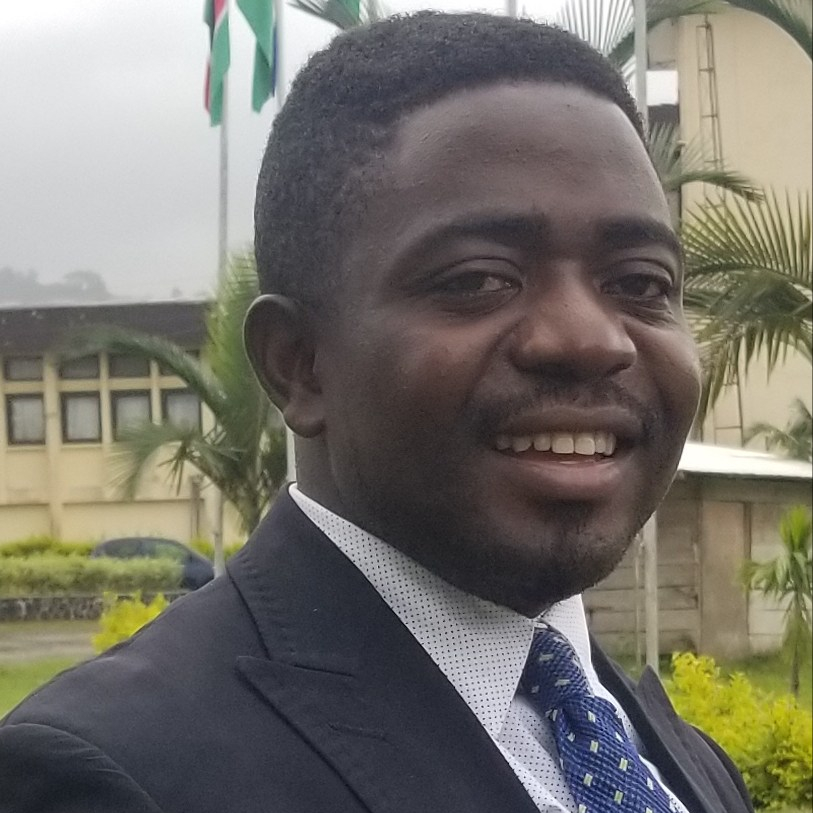
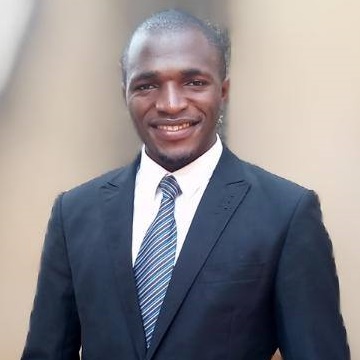
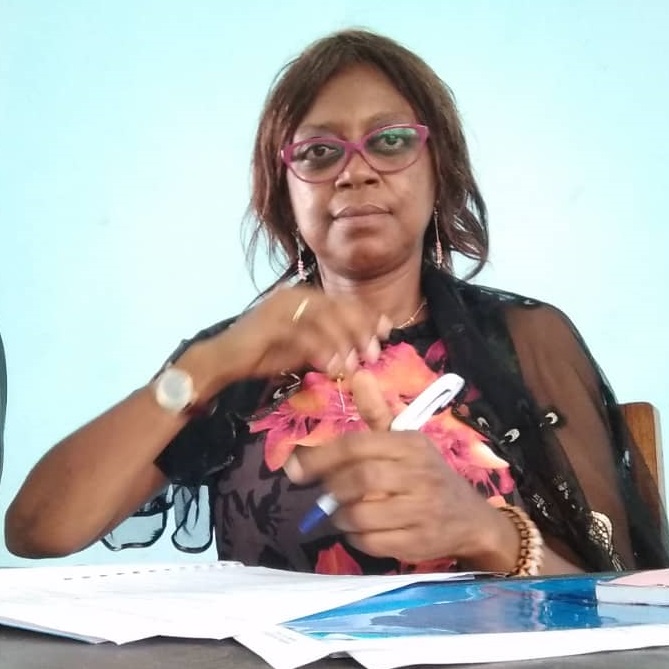
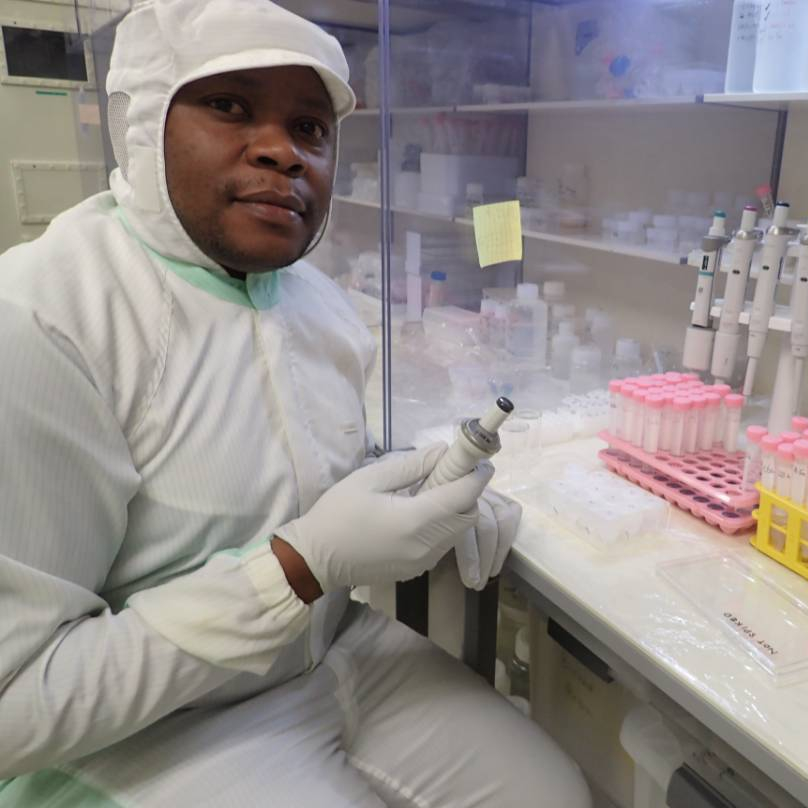
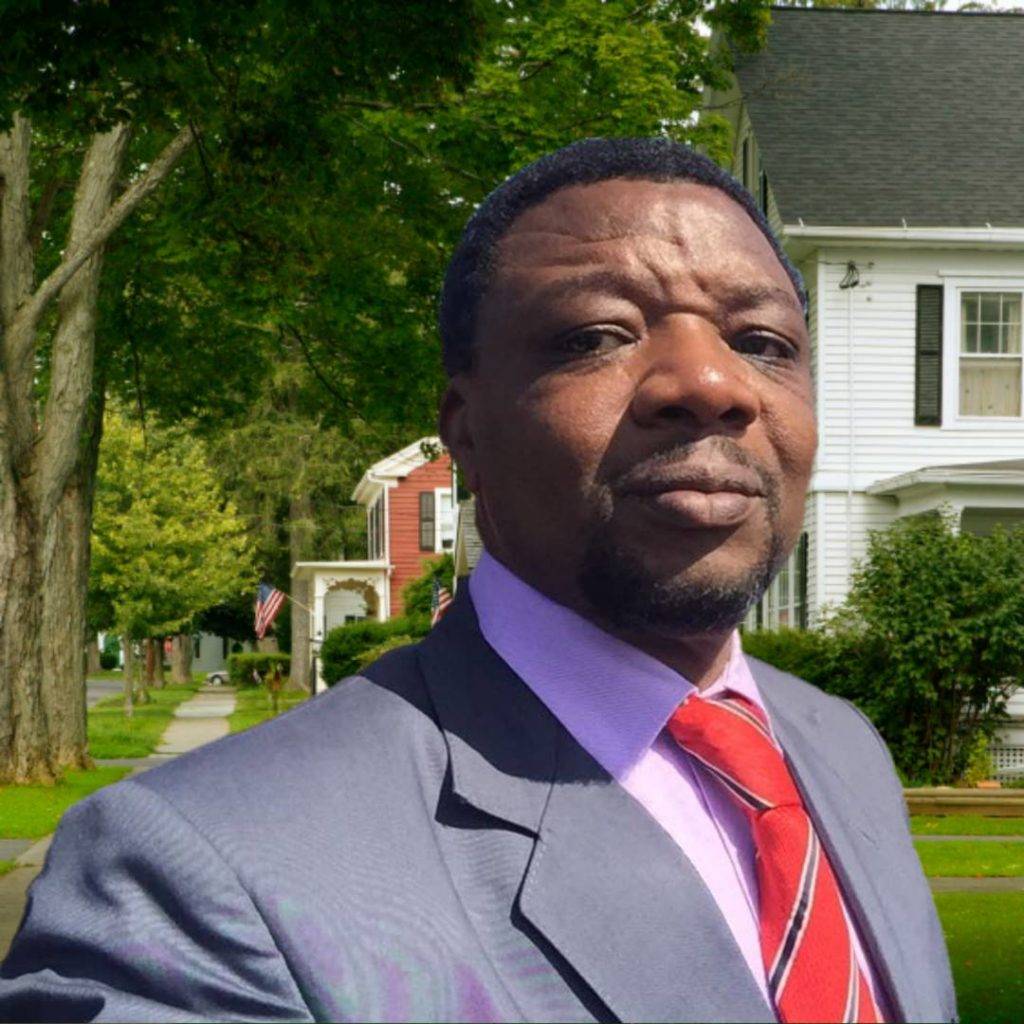
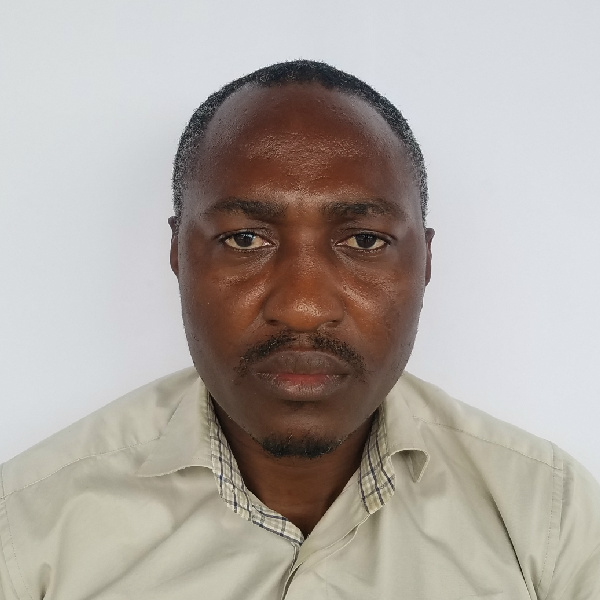

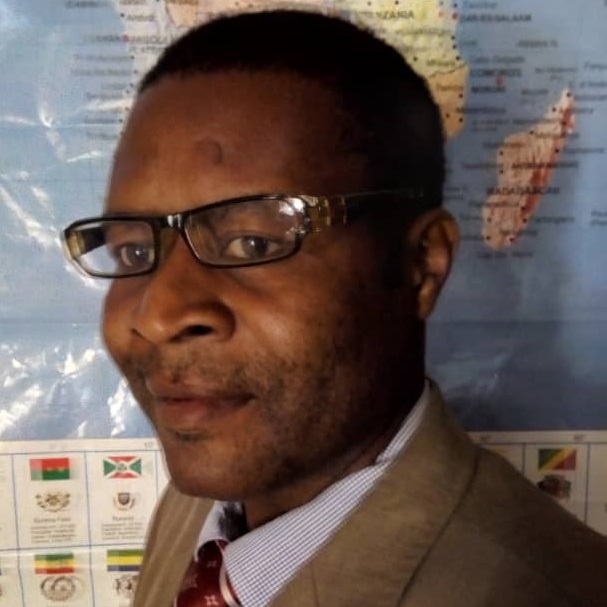
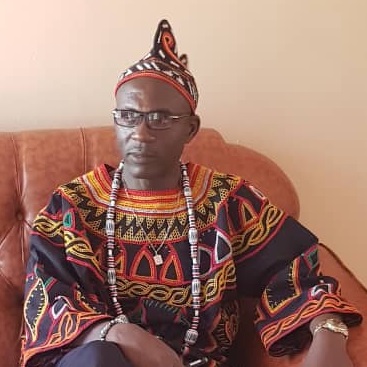

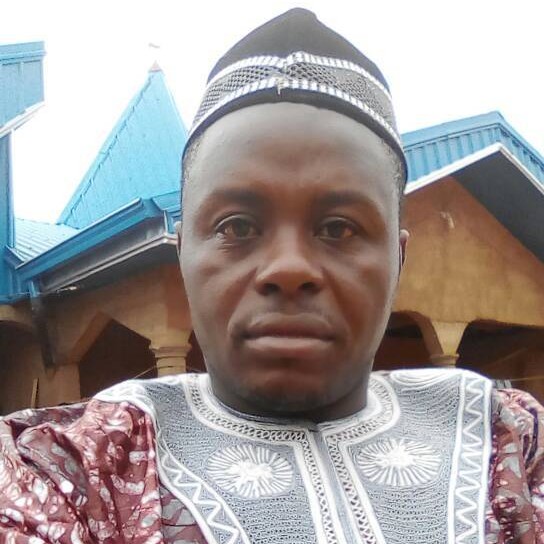

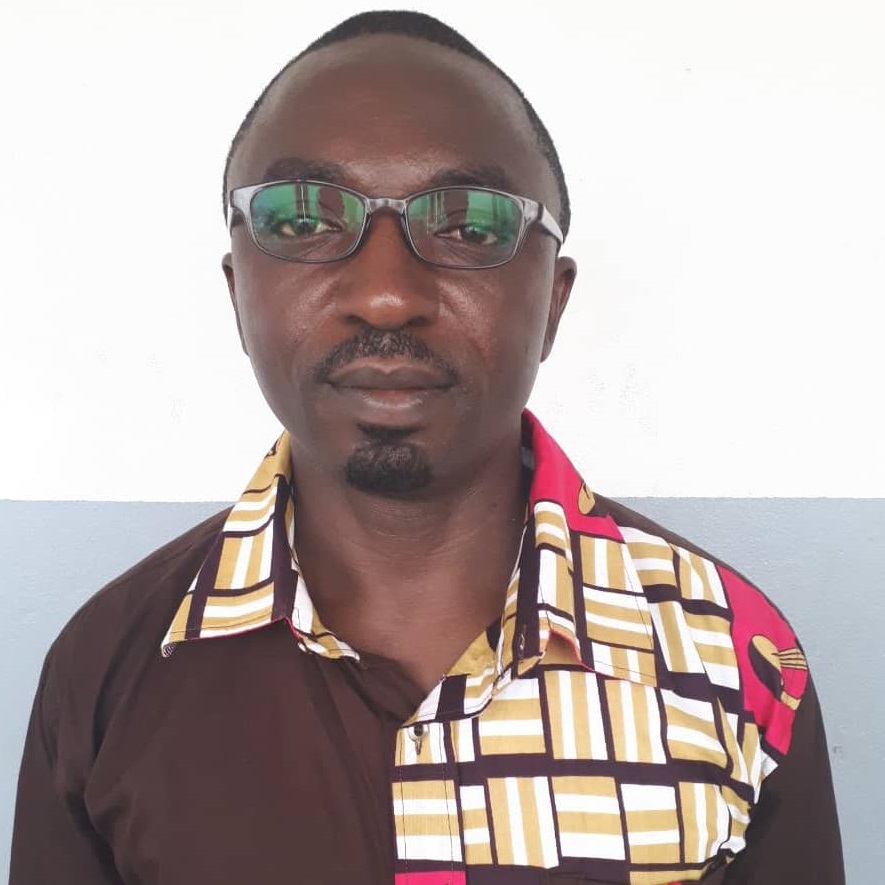
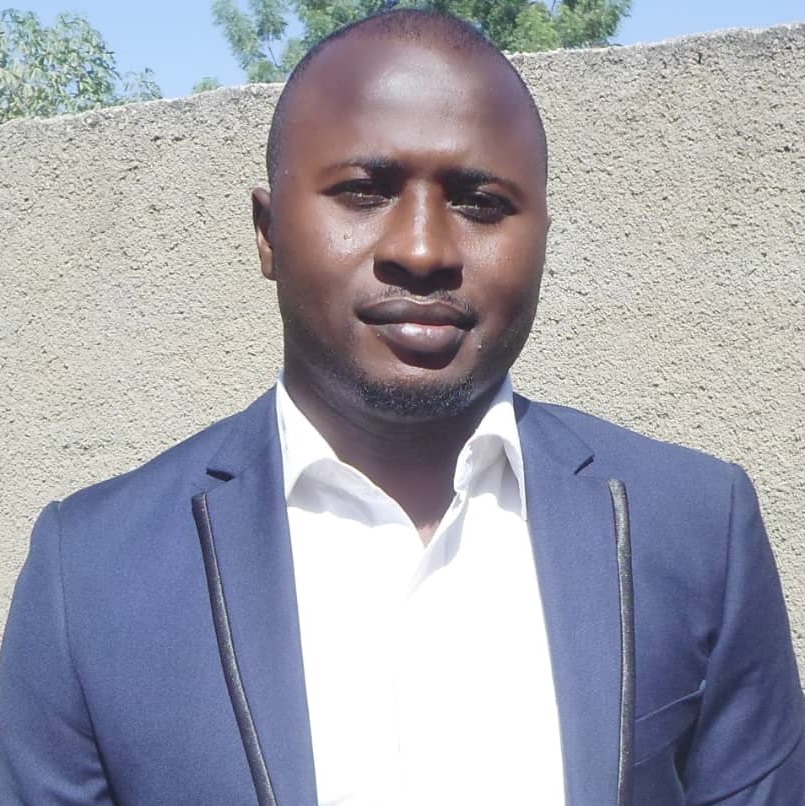
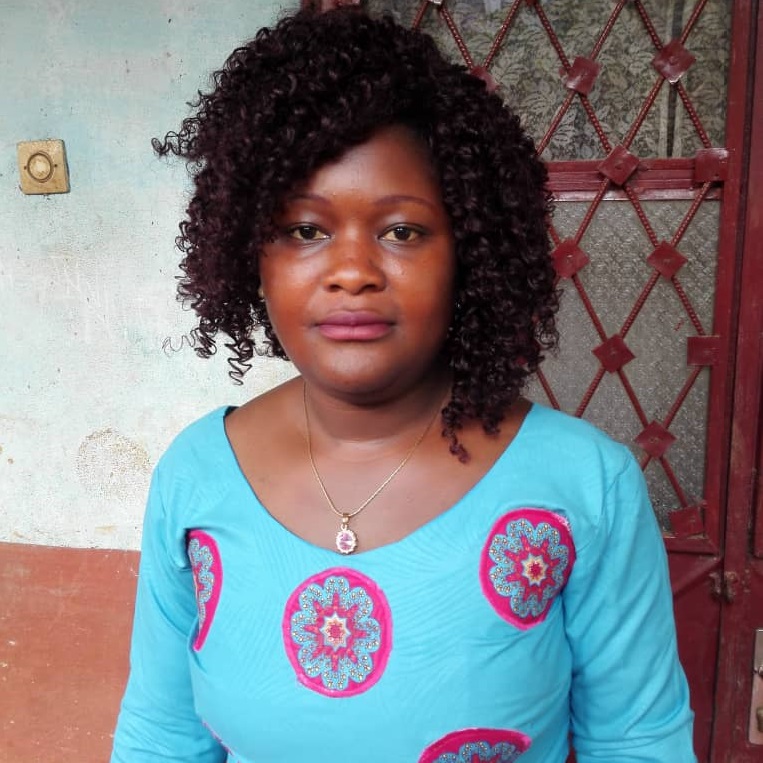
Who are We?
M’muock Network for Education and Development (MUNED) is a Non Governmental Organization (NGO) that was created on March 15, 2014. It is comprised of researchers and publishers (largely volunteers) from the M’muock area of Lebialem Division in the South West Region of Cameroon. The network welcomes researchers from all walks of life and disciplines so long as they are willing to work as a team to realize its vision.
Our Vision
Our vision is to become the reference center for Research and Publication in Lebialem Division, especially by means of a DIGITAL LIBRARY that will be accessible to researchers, publishers, institutions and governments all over the world. We also seek to become the number one promoter of education and development in M’muock by means of partnering and networking with various Ministries of the government of Cameroon and other national development actors as well as the international development actors like, UNDP, FAO, UNESCO, ADB, WB, NEPAD, PAID, etc. We envisage to work with foreign governments who are interested and ready to foster education and development in the M`muock area particularly, USA, Canada, Germany and UK.
Our Mission
We seek to promote education and development in M’muock through research and publication. This is to provide current and future researchers, scholars, etc., with vital information about M’muock tribe and people, as well as other related issues. We are out to also participate in the implementation of the 17 SDGs of the United Nations. We are working hard to integrate M’muock into the global vision of the world by improving the quality of life of the M’muock people by 2030 as stipulated in the “2030 Agenda” of the United Nations (UN) through education and development (no poverty, zero hunger, good health, gender equality, clean water and sanitation, clean energy, environment and social justice).
What is Sustainable Development Goals (SDGs)? SDGs also known as Global Goals for Sustainable Development are a collection of 17 global goals set by the United Nations General Assembly (UN-GA). The SDGs are part of Resolution 70/1 of the UN-GA: “Transforming our World: the 2030 Agenda for Sustainable Development. That has been shortened to “2030 Agenda”. The goals are broad and interdependent, yet each has a separate list of targets to achieve. Achieving all 169 targets would signal accomplishing all 17 SGDGs.
Goal 1: No Poverty
Goal 2: Zero Hunger
Goal 3: Good Health and Well-Being for People
Goal 4: Quality Education
Goal 5: Gender Equality
Goal 6: Clean Water and Sanitation
Goal 7: Affordable and Clean Energy
Goal 8: Decent Work and Economic Growth
Goal 9: Industry, Innovation, and Infrastructure
Goal 10: Reducing Inequalities
Goal 11: Sustainable Cities and Communities
Goal 12: Responsible Consumption and Production
Goal 13: Climate Action
Goal 14: Life Below Water
Goal 15: Life on Land
Goal 16: Peace, Justice and Strong Institutions
Goal 17: Partnerships for the Goals
As observed above, the 17 SDGs cover social and economic development issues including poverty, hunger, health, education, global warming, gender equality, water, sanitation, energy, urbanization, environment and social justice which are all part of MUNED developmental vision/mission for M’muock. Thus, it is for this very reason that MUNED supports education and other development projects in various areas such as health, water, energy, gender equality, sanitation, environmental protection, etc. in M’muock that better the living conditions of the M’muock people.
What We do
Our name tells our story. MUNED is out to promote the education and development of M’muock people and tribe through research and publications. We engage in Research, Publishing, Community Support, Sensitization and Networking.
Communication tools
Our Publications are mostly digital. We reach out to the world mainly through our website and Facebook page. Hard copy publications are limited.

